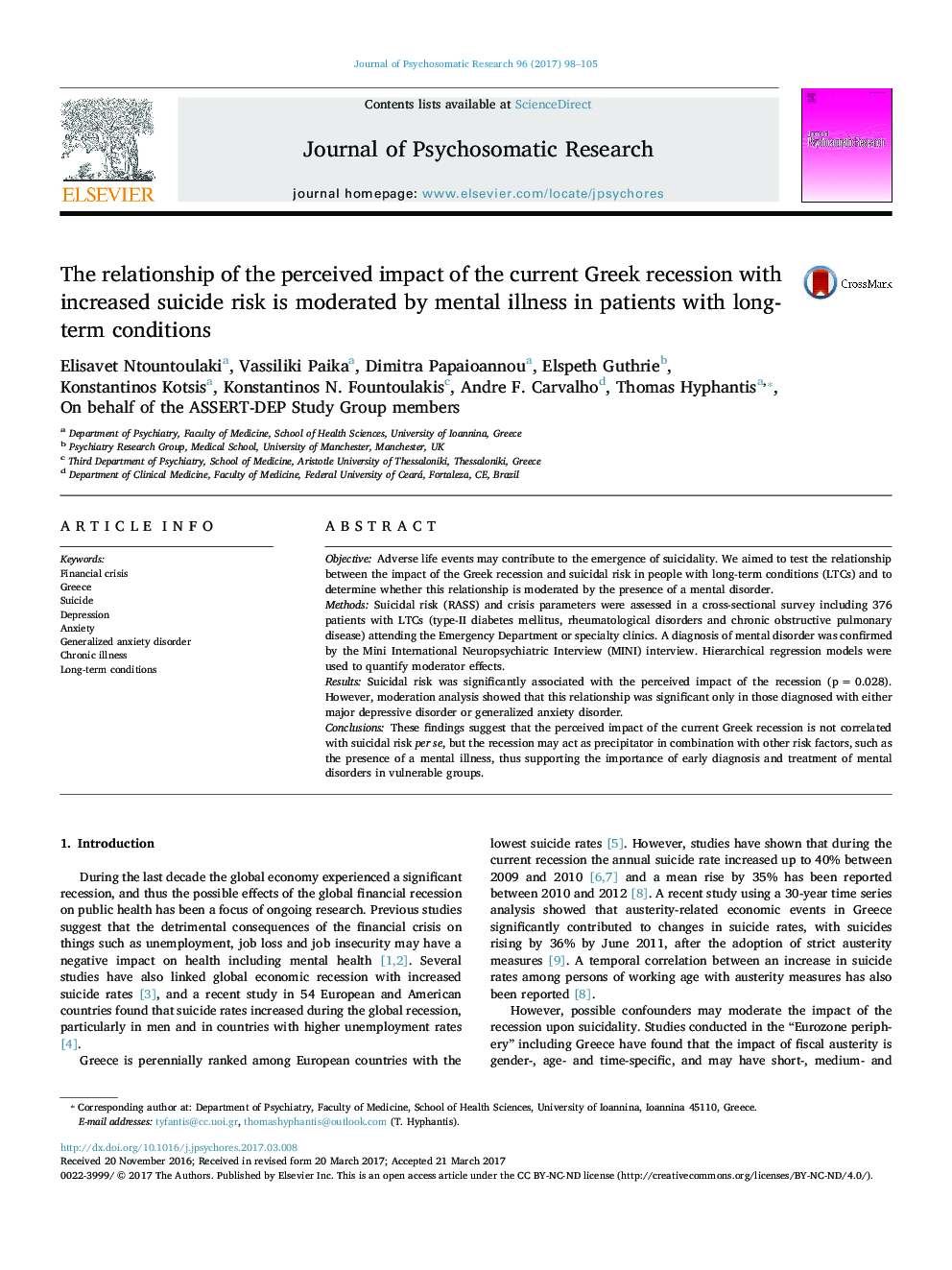| کد مقاله | کد نشریه | سال انتشار | مقاله انگلیسی | نسخه تمام متن |
|---|---|---|---|---|
| 5045920 | 1475899 | 2017 | 8 صفحه PDF | دانلود رایگان |
- Recession and austerity measures in Greece may have a negative impact on health.
- The perceived impact of the recession may influence suicidality.
- We tested if the impact of recession on suicidality is moderated by mental illness.
- Perceived impact of recession influenced suicidality only in those with mental illness.
ObjectiveAdverse life events may contribute to the emergence of suicidality. We aimed to test the relationship between the impact of the Greek recession and suicidal risk in people with long-term conditions (LTCs) and to determine whether this relationship is moderated by the presence of a mental disorder.MethodsSuicidal risk (RASS) and crisis parameters were assessed in a cross-sectional survey including 376 patients with LTCs (type-II diabetes mellitus, rheumatological disorders and chronic obstructive pulmonary disease) attending the Emergency Department or specialty clinics. A diagnosis of mental disorder was confirmed by the Mini International Neuropsychiatric Interview (MINI) interview. Hierarchical regression models were used to quantify moderator effects.ResultsSuicidal risk was significantly associated with the perceived impact of the recession (p = 0.028). However, moderation analysis showed that this relationship was significant only in those diagnosed with either major depressive disorder or generalized anxiety disorder.ConclusionsThese findings suggest that the perceived impact of the current Greek recession is not correlated with suicidal risk per se, but the recession may act as precipitator in combination with other risk factors, such as the presence of a mental illness, thus supporting the importance of early diagnosis and treatment of mental disorders in vulnerable groups.
Journal: Journal of Psychosomatic Research - Volume 96, May 2017, Pages 98-105
